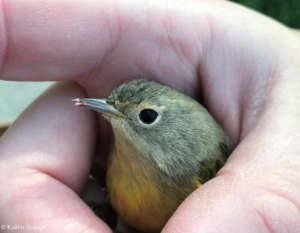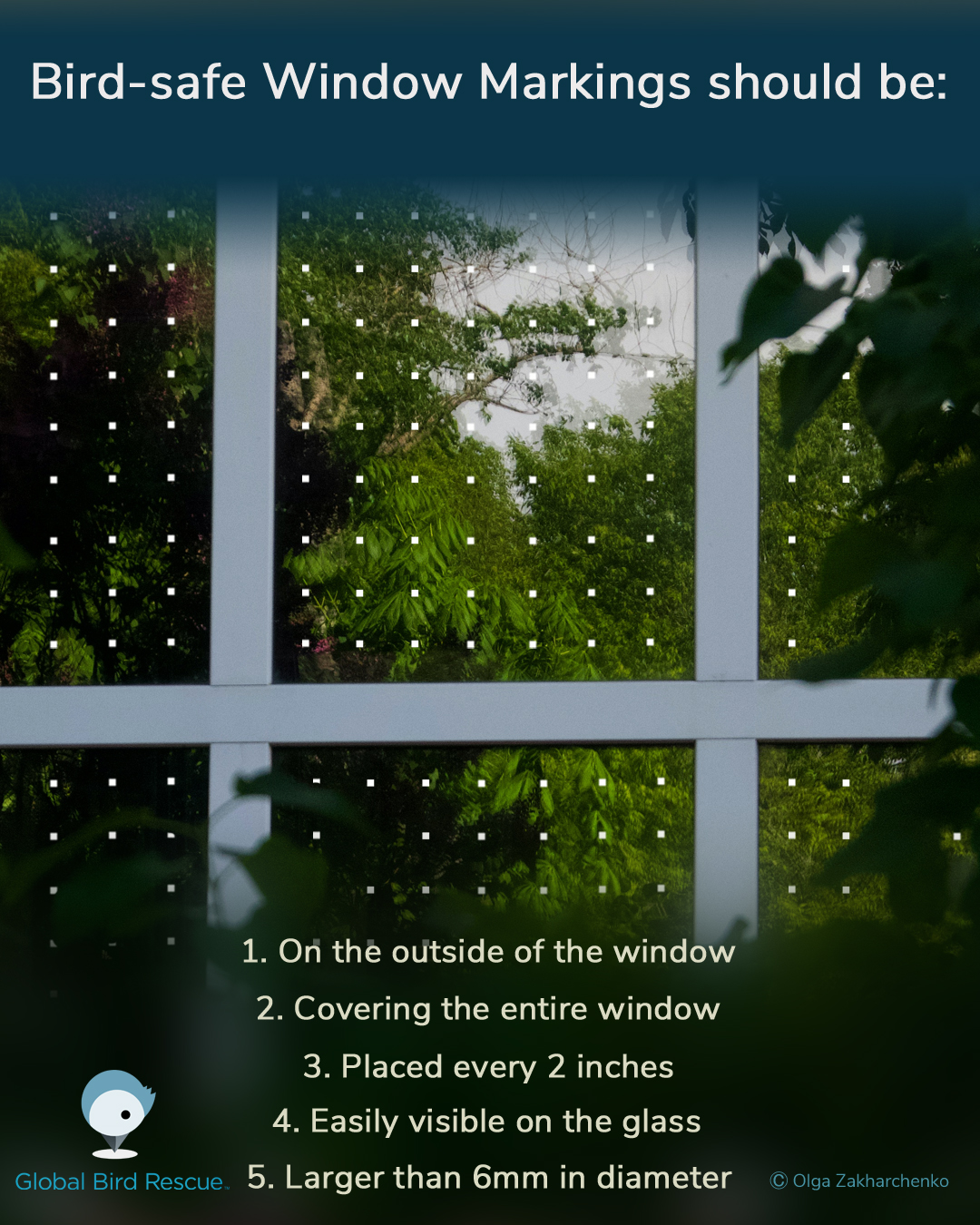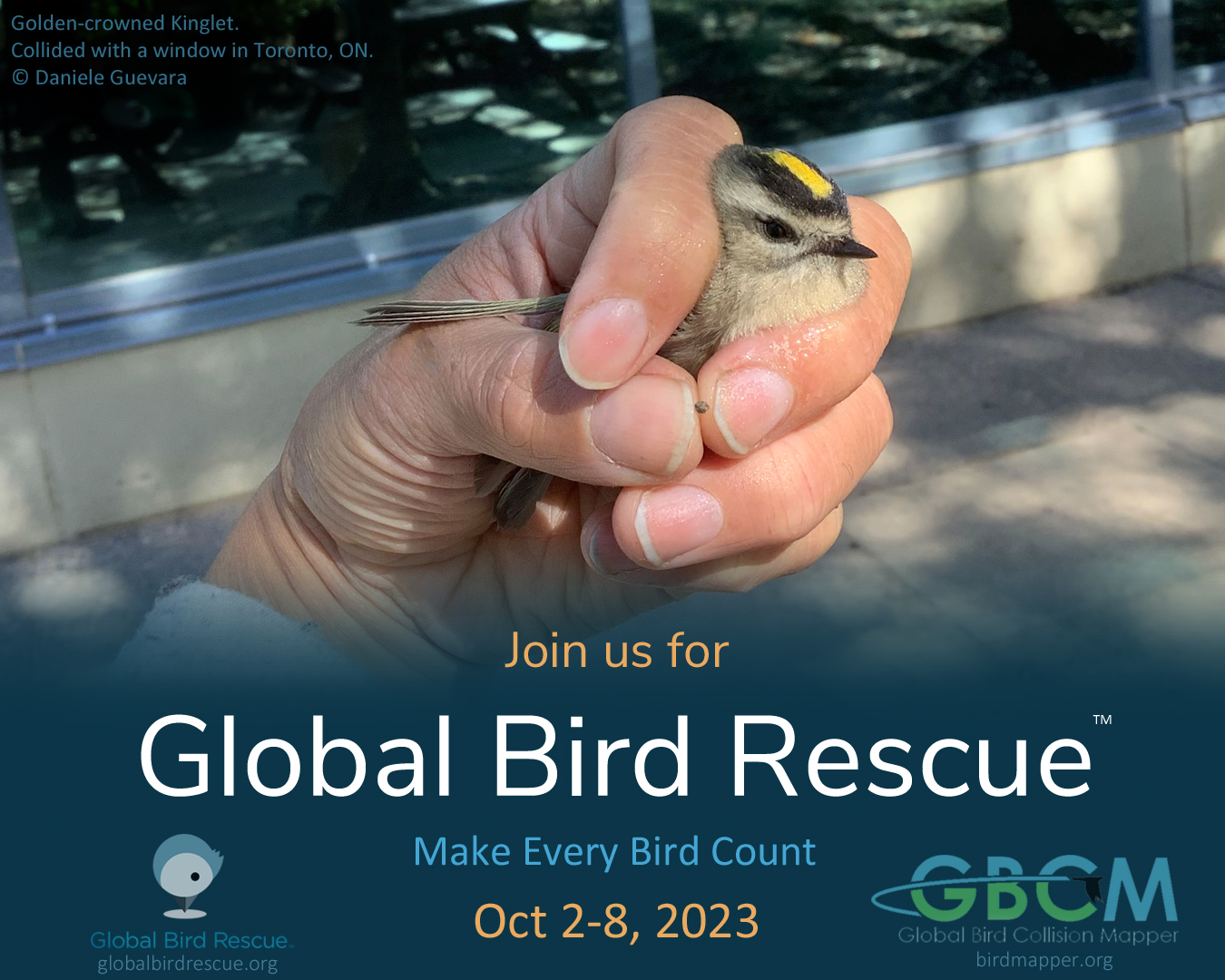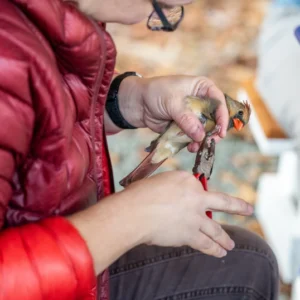Making Every Bird Count This Fall Migration Season
Migratory birds that nest and breed in the north, are now making their long journey back south to overwinter in a warmer climate. An estimated 4 billion birds will have to navigate through cities, neighbourhoods, and other built environments. Sadly, many of these birds never arrive at their wintering grounds because they are killed or injured from collisions with glass. Did you know that you can help them arrive safely?

A Nashville Warbler with a broken beak was successfully rescued this fall and taken to the Toronto Wildlife Centre for treatment by a FLAP Volunteer.
Join us for Global Bird Rescue Week!
Every year during the first week in October, to help spread awareness of the issue, FLAP Canada in partnership with Nature Canada, hosts Global Bird Rescue (GBR). This week-long event encourages people around the world to search for birds that have collided with windows and to make their windows bird-safe. There is still time to join the movement! This year, Global Bird Rescue takes place Oct 2-8, 2023. Registration for the event is open until Oct 2. Currently, there are 36 GBR Teams from countries including Canada, the USA, Costa Rica, India, China, Nepal, Mexico and Panama participating in the event.
During the event, GBR Teams search for birds that have collided with windows in their communities. They record this data in the Global Bird Collision Mapper and ensure injured birds get the care they require from their local wildlife rehabilitation facility.
The new Global Bird Collision Mapper
The new and improved Global Bird Collision Mapper is here! Utilizing ArcGIS to better visualize and interpret the data, this software also allows us to streamline the process of reporting collisions. This community science tool allows anonymous and registered users around the world to document the species, location, time, status and other details of each bird they recover.
Every bird reported to the Global Bird Collision Mapper helps us further understand the scope of the bird-building collision issue. This data also plays an integral part in seeing bird collision deterrent window treatments being installed at dangerous buildings.
Other Ways You Can Help!
1. Make your windows bird-safe.
Did you know that the majority of bird collisions happen at low-rise buildings, including homes and cottages? To ensure you don’t hear that dreaded “thump” of a bird colliding with your window this fall, make your windows bird-safe by applying visual markers that follow these window marker guidelines. Every window we make bird-safe is a huge step towards protecting migratory bird species.

2. Report problem buildings with the new Bird-Friendly Building Survey.
Help us collect information on buildings and their efforts to be bird-friendly. The Bird-Friendly Building Survey offers a way to track bird-friendly buildings across the globe by showcasing their designs! This survey also acts as a database for identifying problem buildings where numerous birds are known to collide. When it comes to reducing collisions, the ultimate goal is to have buildings address the issue of collisions by treating their windows and glass facades with effective visual markers.
3. Bird-safe legislation and retrofits.
Pushing for bird-safe legislation will ensure that we continue to protect birds. Reach out to your member of provincial parliament, City Councillors, and government agencies to let them know about this critical issue, and that you would like them to support bird-safe legislature. Encouraging retrofits on buildings with known window collisions is another fantastic way to help. Have you witnessed bird collisions at your workplace? Try reaching out to the building manager or owner to let them know that retrofitting the building will save countless birds’ lives.
4. Turn off lights at night.
As birds migrate at night, they use the stars to guide them. Bright lights from urban centres can draw birds off course. Once in these urban spaces, they risk colliding with glass. Do you have outdoor lighting? Do your neighbours? To help birds bypass our dangerous cities, try turning these unnecessary outdoor lights off during migration in spring and fall.
You can make a difference!
Each of us can help protect birds from fatal collisions with glass. Participating in Global Bird Rescue by signing up as an individual or group, logging your findings in the GBCM, making your home windows bird-safe, pushing for bird-safe legislation, and telling your friends, family, and neighbours about the issue, are all great ways to make a big difference. Together, we can save the lives of millions of birds.
Add your name to become a Migratory Bird Defender and learn more about how you can protect birds in your community.




